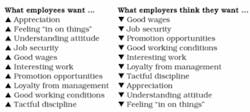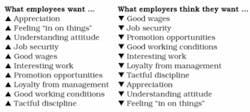Hiring Right
Dear Dianne,
Keeping my practice properly staffed is one of my greatest headaches! I made some bad hiring decisions that resulted in turnover and unpleasant departures of staff members who just did not work out. One recent hire for the front desk lasted only two weeks. A chairside assistant I hired six months ago missed five days of work in the first month of employment, so I had to let her go. A hygienist I hired quit without notice over a petty disagreement with me over her uniforms. How can I improve my hiring process so that I can hire good people and keep them?
At Wits’ End!
Dear At Wits’ End,
Of all the practice-management issues that doctors have to address, staffing is without a doubt the most difficult aspect in many practices. Your staff members are your greatest assets in helping you take care of patients and growing your practice. Turnover, while unavoidable at times, is costly and frustrating, and it sounds like you have had some serious problems assembling the right team!
First let’s address the hiring process. It is important to place an ad that will attract the right candidate. The ad should give sufficient information about what type of person you are seeking by naming the qualities that are necessary for job success. Here is an example of a good ad for a business assistant:
Front desk assistant/financial coordinator - Our exceptional dental practice is looking for a person who has excellent communication skills in person and over the telephone. If you are enthusiastic, caring, dependable, and have experience with computer scheduling, insurance, and collections, please send a resume and cover letter in your own handwriting to P.O. Box XXX, c/o this paper, or fax to 123-4567.
The number one trait that predicts whether an employee will be good is work ethic. A job candidate’s past performance is the best indication of his or her future performance. Surprisingly, studies show that doctors check references for only 10 to 20 percent of the people they hire. Applicants should provide at least three references. These may be former employers, peers at previous positions, fellow members of professional associations, or former teachers or professors. Rarely is a family member a suitable reference.
When checking references, talk to those who best know the job performance of the individual, such as the doctor or office manager. Instead of using the word “reference,” say, “Mary Smith is being considered for a position in our office. She suggested I contact you to verify a few facts about her background. May I ask a few questions?” If you encounter resistance from references, it could be that the former employer is fearful of being sued by the candidate for defamation of character. When performance is good, there is generally no problem getting someone to share information. If no one will speak for the candidate, this is a red flag. The most critical question is: Given the opportunity, would you hire this person again?
Smart hiring starts with smart interviewing. Here are a few interviewing tips:
- Don’t talk too much. A good rule of thumb is to let the candidate talk 80 percent of the time.
- Give short, noncommittal responses. Don’t be elaborate in response to the candidate’s questions.
- Limit interruptions. Schedule uninterrupted time for interviews and do not accept telephone calls or leave the meeting.
- Take notes while the candidate is talking. This helps you stay focused and provides material for follow-up questions.
- Listen carefully to responses. Don’t think ahead to the next question; listen all the way to the end.
- Don’t rush questions. Pause after the response to ensure the candidate has finished.
(Used with permission from Smart Staffing, Wayne Outlaw, Upstart Publishing Co., 1998)
Additionally, you should have written job descriptions for each position in your office. The job candidate should be shown the job description and invited to make comments about his or her ability to fulfill the requirements.
Hiring is the easy part. The challenges start after you hire someone. Your challenge is to create an environment that will help the staff member grow and become “seasoned” in your practice. The new staff member must be welcomed, appreciated, respected, and allowed to make a few mistakes along the way.
Ask yourself three important questions:
- What do I have to offer this person besides money?
- Is there potential for growth, achievement, and continued learning?
- If I were an assistant or hygienist, would I want to work for someone like me?
The number one predictor of happiness is whether or not the employee feels appreciated. Money is important, but it is not the best way to show your appreciation to a team member. Show appreciation by saying thank you; by praising in public and correcting in private; by respecting your team members’ time; by being open, fair, and honest; and by being sensitive to their feelings.
A large corporation listed 10 criteria about job satisfaction and asked employees to rank the criteria from most important to least important. Then they asked managers to rank the criteria as they believe employees would rank them. The results were surprising, in that what employees want and what employers think employees want are very different (see table).
Since you have had chronic problems keeping staff members, I ask you to look introspectively into your interpersonal relationships and feelings about your staff members. Sometimes doctors are their own worst enemies. A negative attitude about the team will negatively affect the working relationship. Some doctors view their team members as liabilities, and are more concerned about what the team can do for him/her and the practice than about him/her as a human being.
Perfectionism could also be a problem. Dentists are notorious perfectionists! I have dealt with doctors who are intolerant of anything that they deem less than perfect. They continually find fault with their team’s performance and are unwilling to look at their own imperfections. The fact is there are no perfect team members or perfect doctors. Everyone makes mistakes. To create a stress-free work environment, we must overlook the imperfections in others. Team members do not like feeling “under the microscope” day in and day out.
I would also advise you to have a well-written “Policies and Procedures Manual” that sets forth clear guidelines on all issues regarding staff employment, benefits (including uniforms), and other workday issues.
Finally, I would challenge you to keep the lines of communication open with new hires by asking them how they are doing and encouraging questions during the first weeks of their employment. Treat all your staff members exactly as you would like to be treated if you were in their shoes, and express your appreciation in both word and deed.
Best wishes,
Dianne
Dianne Glasscoe is a speaker, consultant, and writer for the dental industry with more than 30 years of experience. She is CEO of Professional Dental Management, Inc., in Frederick, Md. You may reach her at (301) 874-5240, [email protected], or visit www.professional dentalmgmt.com.

